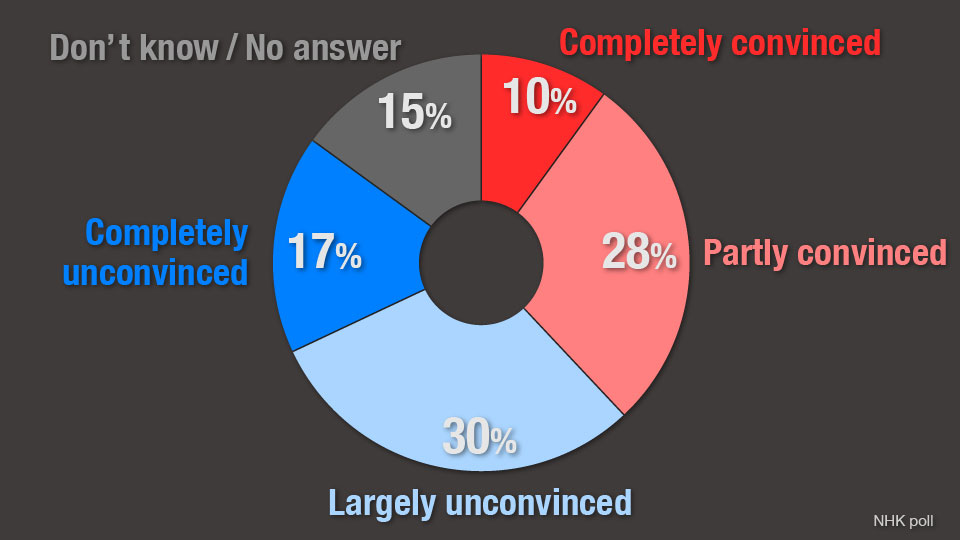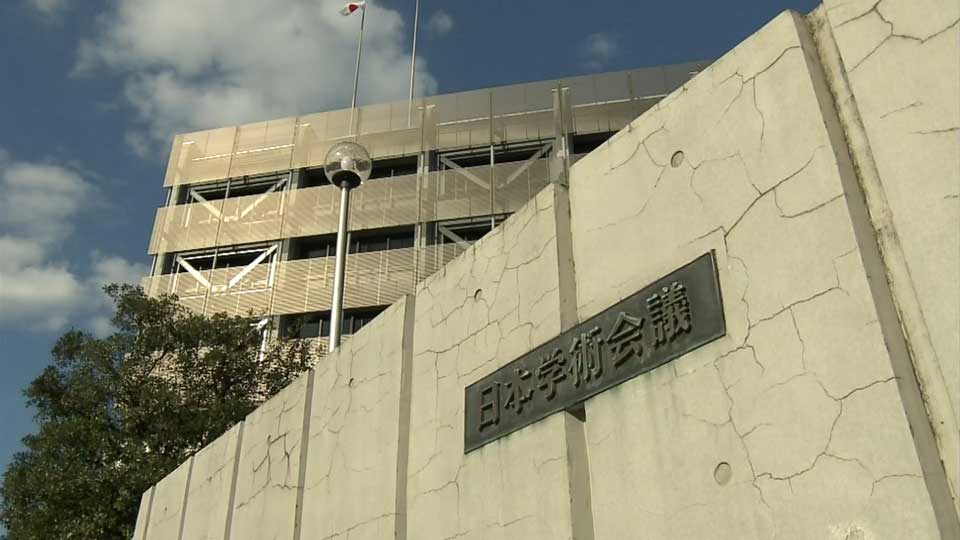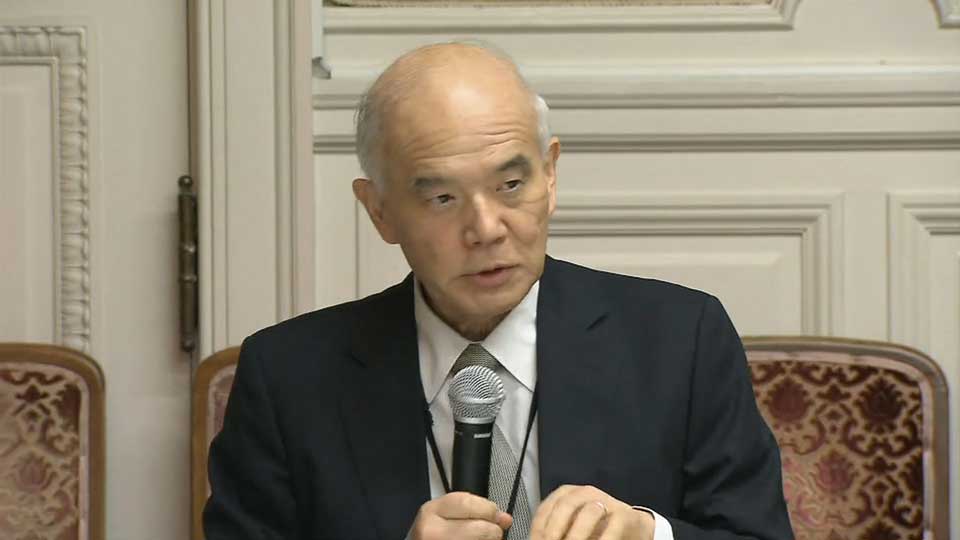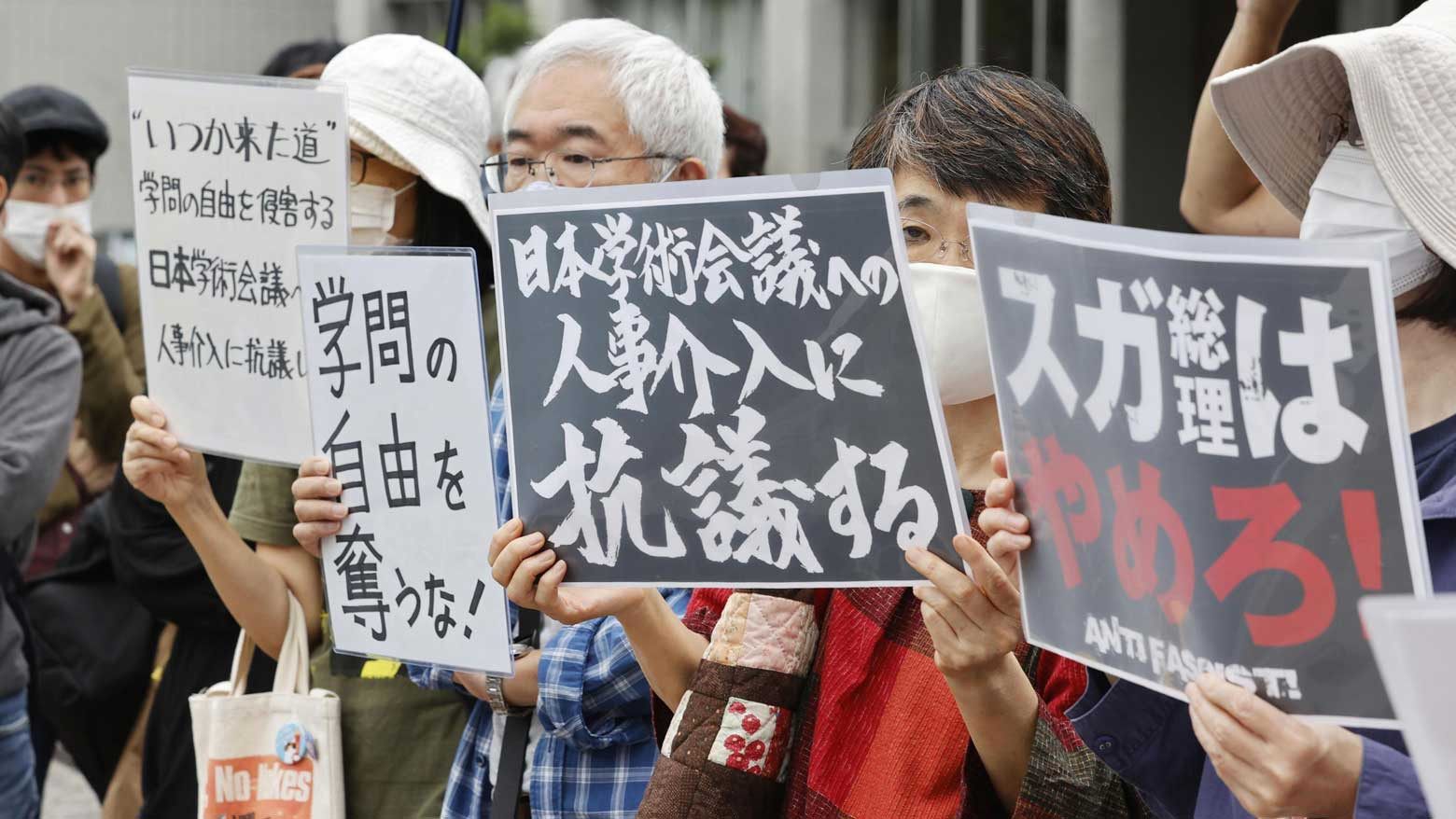At the heart of the controversy is a suggestion that Suga rejected the nominees because they have been outspoken over controversial issues.
NHK's telephone survey last weekend canvassed the opinions of 2,236 people. Of that number, 1,284 people, or 57%, responded.
People were asked whether Suga's explanation - that the decision was based on law - was convincing. More than a third said they thought it was. A much larger number, 47%, disagreed. Nearly 70% of opposition supporters and almost 60% of people with no party affiliation expressed dissatisfaction with the explanation.

The Science Council of Japan is designated as a special organization under the jurisdiction of the prime minister. It makes policy proposals independently of the government, and its 210 members represent about 870,000 scientists. Half are chosen every three years. They are recommended by the council and are appointed by the prime minister.
Of the 105 nominees put forward, Suga rejected six, a number that includes professors who have expressed opinions about divisive issues. Critics are worried that the government is trying to exclude nominees who have different beliefs. They also claim academic freedom is under threat.

Academics and opposition lawmakers are urging the government to fully disclose the reasons for the nominees' rejection. They also cite government officials who have explained to the Diet in the past that the appointments are a formality, a process that's been followed since the 1980s.
Early this month, a 2018 document came to light that says the prime minister is not obliged to appoint every nominee. Japan's opposition claims this represents a change in legal interpretation, something the government denies.
Last week, Suga described the matter as a closed case. He said a revised list of nominees does not include those rejected, adding he did not intend to reconsider.
Academic societies are alarmed
A former leader of the Science Council met with opposition lawmakers on Friday last week. Onishi Takashi, a University of Tokyo professor emeritus, explained that in the past, government officials had asked about the nomination process and expressed displeasure about particular candidates. Onishi said that on his watch, the council pushed back against political pressure. Regarding the current situation, he said, "If the government applies different criteria from the council's selection standard and turns down nominees, it will be illegal."

More than 100 academic societies in Japan have issued statements, including professors from groups from both the University of Tokyo and Kyoto University. Three of the six rejected scholars belong to those two institutions.
British science magazine Nature referred to the issue in an editorial on October 8. It stated that politicians around the world were pushing back against the centuries-old principle of protecting academic freedom. The editorial went on to claim that public health, the environment and society as a whole was endangered if scholarly autonomy was not respected.
Suga is scheduled to make his first policy speech to the Japanese Diet in a session that is expected to start on October 26. Opposition lawmakers plan to push the prime minister to offer further explanation about the Science Council decision.
The public approval rating for the Suga Cabinet that was installed last month has dropped 7 points since then to 55%. Disapproval expressed in the NHK survey rose 7 points to 20%.

